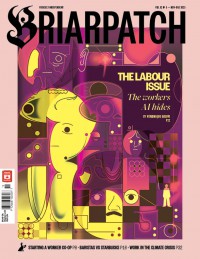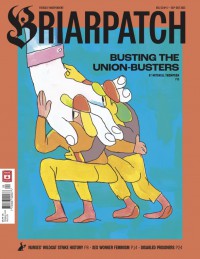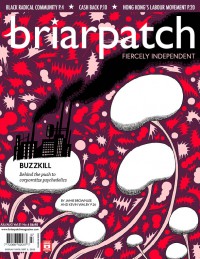-
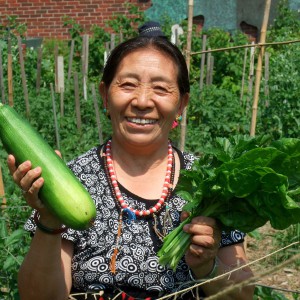 Magazine
MagazineCultivating community
Nestled in a small park in the bustling central Toronto neighbourhood of Parkdale is a community garden project that is improving the health of the environment, the neighbourhood and the gardeners involved by reducing the social isolation and homogenization that often come with gentrification.
-
 Magazine
MagazineUnfinished business
For the last 10 years, Juana López Nuñez (not her real name) has spent most of her waking hours making T-shirts for the Canadian company Gildan Activewear at the company’s San Miguel factory in Honduras. Today, at age 44, she has little use of her arms and experiences constant pain in her shoulders, neck and hands. She takes painkillers throughout the day, and has had one surgery, which didn’t ease the chronic tendonitis that keeps her up at night.
-
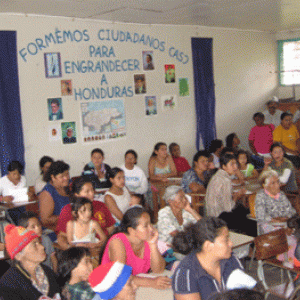 Magazine
MagazineThe Honduran Committee for Peace Action
When I asked Dr. Almendares about the legacy of COHAPAZ, he explained how instrumental these grassroots women’s organizations have been in Honduran human rights movements. “The women have learned a lot about natural medicines, first aid, and birthing through their community organizing.” Pursuing health may not necessarily seem revolutionary, but he says, “health is directly linked with the ability of these women to participate in political action that benefits their communities.”
-
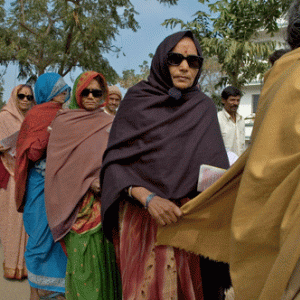 Magazine
MagazineThe blind leading
Over the past decade, much has been written about female literacy and how access to even a basic education can reduce poverty and improve the lives of women and girls. But for millions of women in the Global South, it is access to eye care that they need most.
-
 Magazine
MagazineA pound of flesh
Yesterday I received a long-awaited item in the mail: an application package for admittance to the Gender Identity Clinic at the Centre for Addiction and Mental Health in Toronto. This is the golden ticket for Canadian transsexuals who are in need of medical care (including hormones, surgeries and counselling) and who can’t afford to pay for it themselves. Toronto’s Centre for Addiction and Mental Health, commonly referred to as CAMH, is the gateway to it all.
-
 Magazine
MagazineGenetic modification “inherently unsafe”
Jeffrey M. Smith is the Executive Director of the Institute for Responsible Technology and is an international bestselling author on the health risks of genetically modified foods.
-
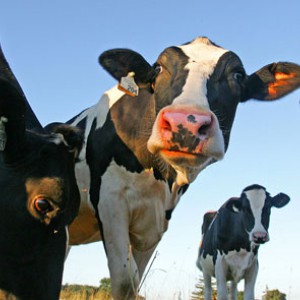 Magazine
MagazineCow powder
Raindrops slam against the windows of the little shop on Bay Street in Victoria. The glass is littered with white-lettered slogans boasting the lowest supplement prices in town. Inside I wipe my feet on the face of the store’s muscle-bound mascot, Popeye, who winks up at me from the doormat. The walls are lined with rows of rainbow tubs, all sealed and packed with supplement powders.
-
 Magazine
MagazineFull steam ahead
Station 20 West is not just a model of an innovative community-based response to endemic poverty and the ill health that results from that poverty; it’s also an example of a community rallying around a good idea and bringing it to fruition, overcoming significant challenges in the process. Thanks to the overwhelming support of the community, the project is now back on track after nearly being derailed by the provincial government.
-
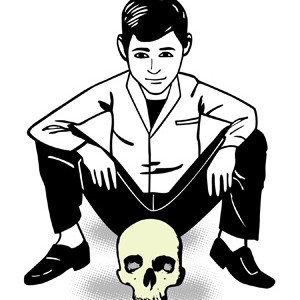 Magazine
MagazineFinding his better half
Men’s social conditioning takes a tremendous toll on not just their relationships, but also on their health. Those who want this to change, Calvin Sandborn argues, will have to come to terms with the concept of patriarchy-and with their own emotions.
-
 Magazine
MagazineCriminalizing the sex trade does sex workers no favours
At some point in one’s life, every adult human being is valued for an isolated skill, talent, or personality trait—and compensated summarily. Most of the time, it’s called “gainful employment.” But if you happen to work in the sex industry, it’s often called “objectification”: a loaded term with unpleasant—and sometimes unfair—associations.
-
 Magazine
MagazineWarlords to the left of me, druglords to the right
Malalai Joya, 29, is a popular women’s rights activist and an outspoken critic of the government of Hamid Karzai and the Northern Alliance.
-
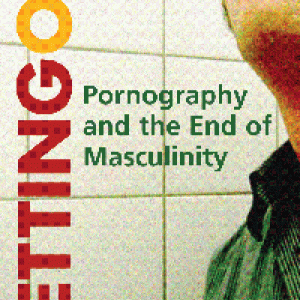
-
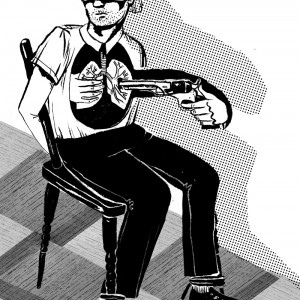 Magazine
MagazineWorking for a ban
Over 40 countries have banned the use of asbestos—a known and dangerous carcinogen. So why does Canada continue to oppose a ban? And where does the labour movement stand on the question?
-
 Magazine
MagazineThe journey back to where I began
I’ll never forget my first day at the Centre, the beginning of a nearly two-year period that would alter my life forever. They’re not all bad memories, but still, they stand as reminders of a traumatic childhood and a time of immense and difficult transition in my young life.
-
 Magazine
MagazineNaturally suspicious
Does the rise of the “naturals” industry represent a small step in the right direction or merely a distraction from a much larger problem?

